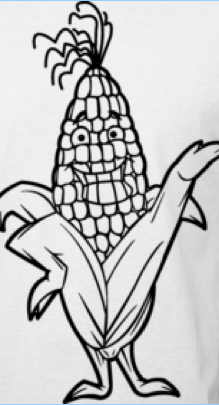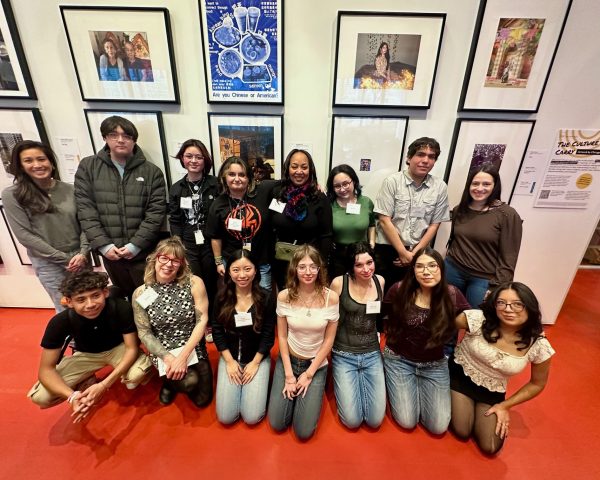Vegetarian students find alternatives to meat
Four percent of American youth age 8-18 identify themselves as vegetarian, according to a 2014 Harris Poll commissioned by the Vegetarian Resource Group.
Some might ask themselves what could be driving these kids to stray away from the typical fast food meat products like burgers, chicken wings, and pepperoni pizzas, but their answers are simple.
“It tastes better,” said Gillmor.
Lili Gillmor, Div. 763 has been a pescatarian since the second grade. Pescatarians are vegetarians who do not eat meat, but eat seafood.
“We had this project where we cooked a traditional Mexican meal and then had to review it. My dad made it with lamb and when I found out I got really sad and said I’d never eat meat again, and I’ve stuck with it,” Gillmor said.
Gillmor is proud of being vegetarian, even though she sometimes feels like she’s missing out.
“For my dad’s birthday we went to a steak restaurant, I couldn’t eat anything, but it all smelled so good,” she said.
The transition to becoming a vegetarian wasn’t too hard for Gillmor. Now, she does not even remember the taste of meat. She does miss meat, but not enough to ever change her views or give up being vegetarian.
Natalia Kaniewska, Div. 567, became a vegetarian around Christmastime four years ago.
“[My brother] He showed me ‘Meet your Meat’ which exploits the unseen side of factory farming and the origins of many Americans’ meat. I was completely disgusted and pledged to be a vegetarian for at least 30 days, and have felt the same way since,” Kaniewska said.
Kaniewska comes from a Polish family, and eating meat is important to them. They tend to comment on her choice often. Though she doesn’t usually crave meat, she does miss a family tradition.
“The one non-vegetarian food I probably miss is bacon because my dad makes it for my family every Saturday morning,” she said.
Kaniewska’s friends comment on the foods she eats, but they don’t influence her opinions at all.
“At this point, meat honestly smells bad to me because I haven’t eaten it in so long and it kind of repulses me,” Kaniewska said.
She enjoys meeting fellow vegetarians, as she finds them quite uncommon.
Maeve McMahon, Div. 585, became a vegetarian seven months ago. She enjoys eating a variety of salads, potatoes, and seafood. She believes that there are easy substitutes for meat, and they benefit her personal health as well as the environment.
“I think my parents get annoyed sometimes because they always have to cook me a separate meal, but they understand why I’m doing it,” McMahon said.
“One day I came home and my mom thought it was funny to put a cow skin rug in my bedroom as a joke. Every time I took it out she would put it back in, and for a good month it went back and forth,” she said.
Tess Conway, Div. 558, became a vegetarian in September 2013. Conway was heavily influenced when she learned the reality of the meat industry from Ms. Jackson, her aquaponics teacher.
Conway chose to become a vegetarian because she is interested in a career in wildlife conservation.
“I realized how hypocritical it felt to preach saving animals and then eat one for lunch,” she said.
In terms of nutrition, Conway says there are easy protein alternatives to meat, such as nuts and legumes. She enjoys simple meals like avocados, toast, cheese, or snacks like fruit, granola bars, and skittles.
“It’s not all lettuce,” she said.
Becoming a vegetarian was a moral choice for Conway.
“Everyone forgets that their hamburger was once a living breathing thing,” Conway said.
Your donations directly fund the Lane Tech student journalism program—covering essential costs like website hosting and technology not supported by our school or district. Your generosity empowers our student reporters to investigate, write, and publish impactful stories that matter to our school community.
This website is more than a publishing platform—it's an archive, a research tool, and a source of truth. Every dollar helps us preserve and grow this resource so future students can learn from and build on the work being done today.
Thank you for supporting the next generation of journalists at Lane Tech College Prep!

Andjela Bursac is an editor-in-chief for The Warrior. She enjoys playing tennis and is on the Lane team. She is an officer for Key Club. Andjela enjoys...






